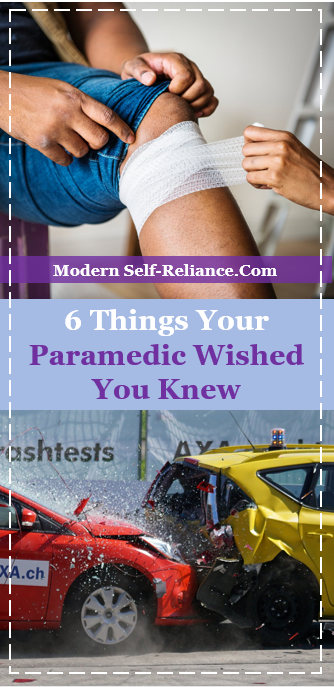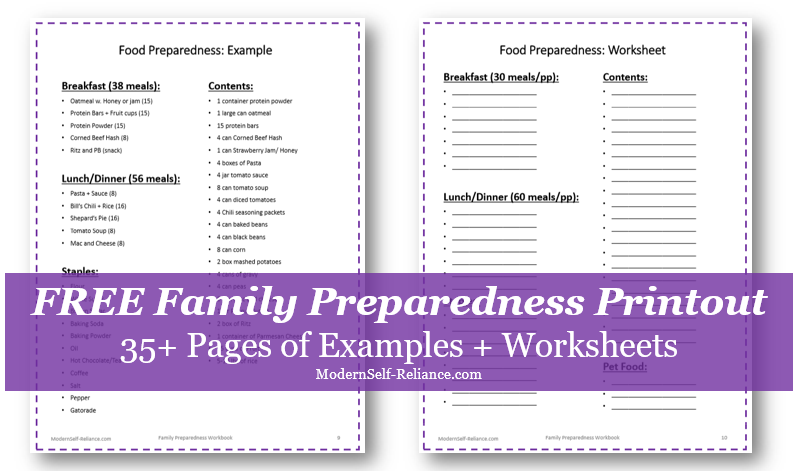We may earn a small commission from any link to any products or services from this website. Your purchase helps support our work in bringing you real information about homesteading skills and preparedness.
I interviewed our paramedic friend, about what would make his job easier. He gave us 6 things, he wished more people knew.
These are skills that would save lives by providing more immediate aid to the victim, or to help yourself.
#1 Hands-Only CPR
There are two parts to CPR, the hands thumping on their chest and the mouth-to-mouth breathing part. Our friendly paramedic wishing that more people knew at least the hands-only portion of CPR.
At least providing physical movement of their lungs will keep their circulation going, and their heart pumping. This also provides some movement of oxygen into their lungs.
In cases where the victim's heart has stopped, starting chest compression as soon as possible giving the person the greatness chance at survival.
#2 Bleeding Control
A person is bleeding out...what do you do? Our friendly paramedic wished more people had the sense to try and stop the bleeding. Either by bandages, cloth or a tight makeshift tourniquet if needed.
Apply pressure, apply cloth to soak up extra blood, apply a tourniquet if bleeding is excess. Blood loss isn't optimal, and the less the person looses the better.
#3 Stroke Symptoms
Know what a stroke looks like, and how to respond quickly. Use the FAST system:
- F: Face drooping. One side of their face looks uneven or dropping.
- A: Arm weakness. One arm is weaker, drifts down, or has numbness.
- S: Speech difficulty. Slurred or strange speech when asked to repeat a simple sentence.
- T: Time to call 9-1-1! Timing is critical. Get the person to a hospital immediately.
Source: https://www.stroke.org/understand-stroke/recognizing-stroke/act-fast/
#4 Heart Attack Symptoms (+ Atypical symptoms)
Likewise, know what a heart attack looks like.
Common symptoms:
- Chest discomfort
- Upper limbs or torso discomfort
- Shortness of Breath
- Lightheaded feelings
Woman and those with diabetes often have atypical symptoms:
- Vomiting
- Back, neck or jaw pain
- Muscle pain similar to a pulled/strained muscle
Source: https://www.heart.org/en/health-topics/heart-attack/warning-signs-of-a-heart-attack
#5 Medications + Allergies
Know what medications you are taking, and what they do.
Friendly paramedic says: "Please don't take meds just because your doctor said so, know what they are and what they do!"
Also, know what you are allergic to. Don't make the paramedics guess, or learn the hard way what you are allergic to.
#6 Wear Your Seat-belt
Car accidents are made much worse if you don't wear your seat belt. While this isn't a "skill", your friendly paramedic would much rather find you bruised in the car rather than bleeding outside the car.
Wear your seat belt people...it's what the cool (alive) kids do.
Conclusions
We hope you will take this moment as an opportunity to educate yourself and others on these 6 things. These simple things can help in the precious moments before the paramedics arrive, but can make a world of difference for the patient.
What else do you think more people should know? Let us know in the comments below.
Read more:

- Fitness: Working Out as Physical Preparedness - February 22, 2021
- Backpacking or 72hr bag meals - December 23, 2020
- 8 Security Concerns for a New Home - October 28, 2019



Leave a Reply